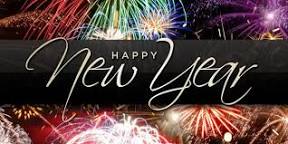2021 – a brave new world, or more of the same?
By Femi Olugbile
Today is the first day in the year 2021. In many cultures of the world, the first day of a new year is celebrated elaborately in a way that speaks of the permanent human psychological aspiration that what is to come is better than what has gone before.
Take the Scots and Hogmanay. In the night of the 31st of December, going into the morning of the first day of the new year, there would be spectacular fireworks on Princes Street, in Edinburgh, the capital. Scotsmen, old and young, many drunk as lords, sing merry songs and hug everybody in sight. At the stroke of midnight, they link hands to sing ‘Auld Lang Syne’ to welcome the new year.
There are few human beings anywhere who would not be happy to see the back of 2020, the year that has just passed. It has been a year of horror. It is not just in the number of deaths that have been caused by COVID19 – when it comes to it, COVID19 cannot hold a candle to the Spanish flu, which killed fifty million people across the world, and five hundred thousand in Nigeria alone in 1918. But sheer numbers apart, in the networked global village that the modern world has become, the disruptions and dislocations caused to the lives of individuals and nations are on a scale that has no comparison in living memory.
What is the Nigerian to make of this New Year, and how is he to position himself to face it? Is it more of the same? Afterall the Second Wave of the coronavirus is still stalking like an invisible evil spirit in the land, picking off its quarry, with a casual, sinister relentlessness here and there.
How quickly will the vaccine that will see off COVID-19 may be dispensed? When will Nigeria return to normal life? Perhaps by March? Or perhaps by June?
And what will be the shape of that ‘normal life’? What prospects does 2021 hold for long-suffering Nigerians?
Hard as it is to imagine, is there anything that might have been gained in the horror of 2020 that may be used to enrich human life in 2021?
Coming out of the pandemic experience, Nigerians need to take a fresh look at their Health, and the provisions made by themselves and by their society to protect and sustain it, and to regain it when it is lost. The illness could be an epidemic, or an infection such as Malaria, which still takes the cake in terms of actual numbers of Nigerians killed or disabled every year, or some other ‘communicable’ disease such as Tuberculosis. Or the illness could belong to the category of ‘Non-Communicable Diseases’ (NCDs) such as Hypertension and Diabetes that kill or disable hundreds of thousands of Nigerians every year. Cancer of various types is also a regular killer in that category.
Hopefully Nigerians have learned that Education and accurate Information are of the utmost essence in fighting disease. The people who denied the reality of COVID19 or spawned conspiracy theories on social media, including ‘men of God’, must accept responsibility for at least some of the deaths that have occurred because people did not take the threat seriously until it got into their households. Nigerians hopefully have learned that the best health system is one in which they can access a basic facility without travelling a long distance from home, and without having to pay out of pocket. It is a good time for Nigerians to realize that no Health is ‘free’ – someone somewhere is paying for it, and to realize that a total, all-encompassing compulsory Health Insurance system is the only arrangement that can protect them and their children sustainably all over the country.
Nigerians, hopefully, through the lockdown they survived, have learned that they can achieve greater efficiency in whatever they do if they spend more time and resources on optimizing their communication and virtual networking and less time on physical travel on the roads.
Speaking of roads and travel, hopefully, it will have become obvious to the managers of the Nigerian state that there is a difference between ‘growth’ and ‘development’, and the spectre of economic ‘growth’ evidenced by countless trailers clogging the roads of Lagos day and night, destroying neighbourhoods such as Apapa cannot and should not be sustained. The much-celebrated re-invention of Nigeria’s more-than-a-hundred years old Railway system must be seen to work and must compulsorily take up a significant percentage of cross-country haulage to relieve the burden on the roads. This will not happen gently, because of vested interests. It will only happen with firm political will.
Perhaps Nigerians have learned to show more concern and even love towards their neighbours, and to look out for those who are less privileged than them, as evidenced by various private initiatives to feed the vulnerable during the hard times.
Perhaps the insistence on social justice and accountability from those charged with the protection of citizens raised by the youths in their #EndSARS protests have not been totally thrown under the bus by the unintended chaos that followed and will be a gain that citizens, police and government will take ownership of and carry forwards in 2021.
Perhaps even the negativities of divisive political struggles cranking up on the road to 2023 will not shift the focus of the public from the need to build a restructured, gentler, more egalitarian society in which the playing field is level and people are not chronically put in psychological trauma by the fear of the hidden agenda of their fellow men.
Because human beings need hope to carry on, it is necessary for the mental health of citizens, if nothing else, that there be hope that the ‘new normal’ will at least hold out prospects for a better life for the Nigerian people.
Welcome to 2021.

